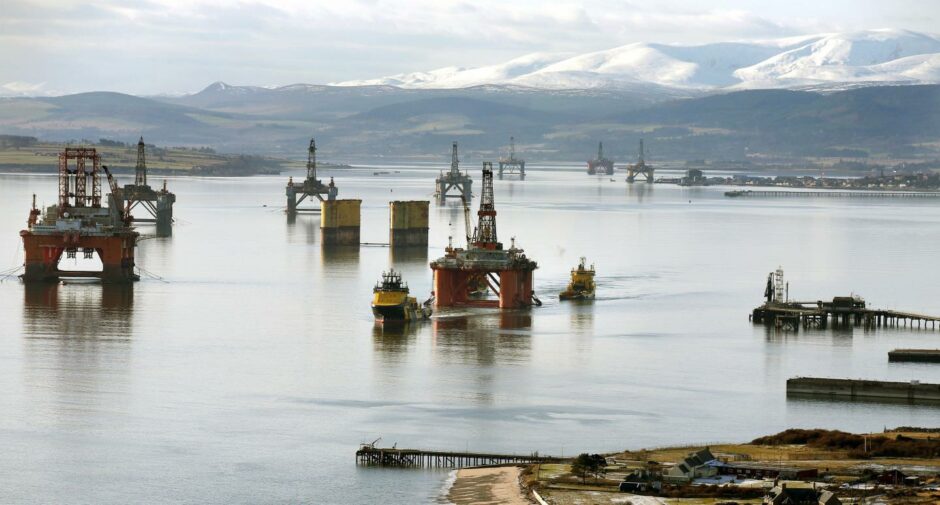
A High Court has thrown out a legal challenge claiming that the UK Government had acted unlawfully in its support for North Sea oil and gas.
Environmental group Paid to Pollute argued that the Oil and Gas Authority’s (OGA) updated strategy was illegal because it supported activity which is “not economic” and in conflict with net zero goals.
However Mrs Justice Cockerill dismissed the case on both grounds in a ruling published on Tuesday.
The OGA welcomed the judgement as “clear, resounding and comprehensive support” of its strategy, adding that it remains “firmly focussed on regulating and influencing the oil, gas and carbon storage industries to both secure energy supply and support the transition to net zero.”
Paid to Pollute, which is backed by Greenpeace, Uplift and Friends of the Earth, said it would review the findings and is considering an appeal.
The UK Government welcomed the judgement and said there will be ongoing demand for oil and gas while it gradulally “drives down” amid the transition to ” lower carbon, more secure forms of energy generated in this country”.
Decommissioning rebates
The crux of the case focussed on the definition of the OGA’s updated strategy, published in February 2021, which defined “economically recoverable” oil and gas reserves as being on a “pre-tax basis”.
Paid to Pollute argued that doing so fails to account for tax breaks and decommissioning refunds granted to the industry, and therefore some fossil fuel production “is not economic for the UK as a whole”.
However, the court dismissed this argument as “strained and nonsensical”.
In her ruling, Mrs Justice Cockerill noted that decommissioning rebates are a partial refund on tax previously paid by companies, and that the worst case position for the Exchequer would be “tax neutral” in the long-term.
The ruling also noted that to focus on individual tax rebates is “to ignore the inflows which have happened”. For example, the National Audit Office has warned that the Treasury has may take a £24billion hit on these rebates, but the oil and gas sector has paid £350billion to the UK in taxes since production started.

In the argument on the wider economic case for the UK, Mrs Justice Cockerill warned Paid to Pollute “not to conflate economic recovery (including wider benefits) with commercial or cost-effective recovery (viewed through the prism of tax revenue)”.
He also said it was “highly unlikely” that Parliament had intended for a court, rather than the independent expert regulator, to determine the best method of economic assessment.
One point which was raised was that “some individual companies (possibly foreign companies) may be net gainers from the taxation regime”.
While the court did not hear whether this has happened, the possibility was not denied by the OGA.
Net Zero
The court also dismissed arguments that the “Maximising Economic Recovery” (MER) strategy is in conflict to net zero.
Mrs Justice Cockerill said “it is far from being the case that it is patent that the consequence of the definition is extra emissions”.
He noted the difference between encouraging economic “value” rather than “volumes” and agreed with the OGA that the campaigners had “oversimplified” the argument.
The claimants’ argument also “entirely fails to grapple with the changes to reflect the move to net zero”, he said, referring to measures such as carbon costs.
Ultimately, the court said the OGA’s work to date “manifestly had considerable regard to UK domestic action on climate change”.
Paid to Pollute
In a statement, the Paid to Pollute claimants said: “The court may not have agreed with the legal arguments, but the costs of subsidising oil and gas production are now a matter of the public record. The UK government needs to get a grip and stop passing public money to an industry making huge profits at the expense of the climate and UK households struggling with their energy bills. We urgently need energy policies that have our interests and the climate at their heart.
“Over the next few days, we’ll confer with our legal team regarding our next steps and the possibility of an appeal. Regardless of what we decide, the billions that the UK government has wasted propping up the oil and gas industry have finally been made public. There is no going back. The fight to stop the flow of public money to oil and gas companies is just getting started.”
Recommended for you


 © Supplied by Paid to Pollute
© Supplied by Paid to Pollute